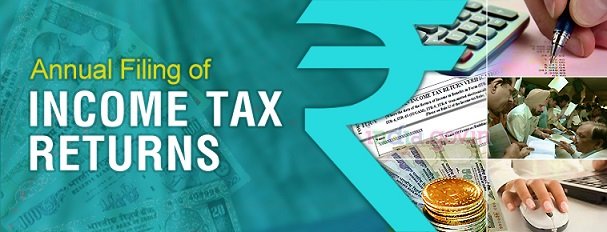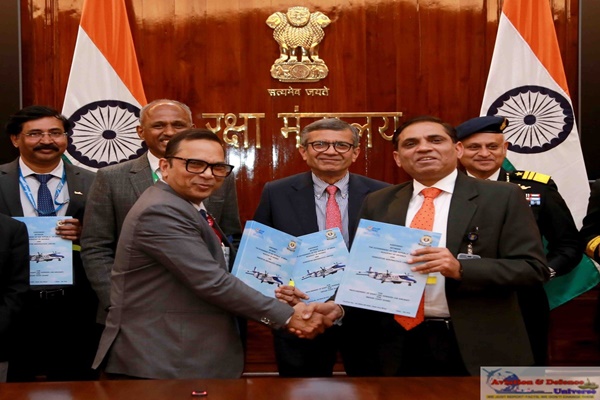
Last Updated on July 21, 2025 11:22 am by BIZNAMA NEWS
R. Suryamurthy
A parliamentary committee examining the draft Income-Tax Bill, 2025, has flagged several drafting flaws in the proposed revamp of India’s six-decade-old tax law and put forward 32 formal amendments along with over 560 corrective suggestions.
The exhaustive 4,584-page report, prepared by a 31-member Select Committee of the Lok Sabha led by BJP MP Baijayant Panda, was submitted to Parliament on Sunday. While the draft legislation aims to modernize tax administration by simplifying language and minimizing litigation, it largely retains the structure of the existing 1961 Act and avoids major shifts in tax policy.
One significant change, however, includes the removal of earlier proposed restrictions on tax refunds.
A key recommendation includes the deletion of Clause 263(1)(ix), which would have denied income-tax refunds to taxpayers who filed returns after the due date. Experts said this would have unfairly penalised low-income earners and senior citizens who fall below the taxable threshold but have taxes deducted at source.
“This corrects a structural flaw and ensures that procedural delays do not deprive taxpayers of legitimate refunds,” said Amit Maheshwari, tax partner at AKM Global.
The move also neutralises Clause 433, which had tied refund eligibility strictly to timely return filing, a provision widely seen as excessive.
Corporate tax clarity
The panel has proposed restoring tax relief on inter-corporate dividends for firms opting for the concessional 22% rate, aligning with existing provisions to avoid cascading tax.
“This eliminates ambiguity for companies in multi-tiered structures,” said Gouri Puri, partner at Shardul Amarchand Mangaldas.
The report also calls for updating the definition of “capital asset” to reflect recent amendments in the Finance Act, 2025, especially those affecting foreign institutional investors and investment funds.
House property and personal tax relief
The committee recommended that the 30% standard deduction on house property income be calculated after deducting municipal taxes, consistent with current law. It also reinstated the deduction for pre-construction interest, extending it to both rented and self-occupied homes.
“These fixes help preserve tax neutrality for individual taxpayers,” said Deep Jhunjhunwala, tax partner at Nangia Andersen LLP.
Compliance burden flagged
The definition of “beneficial owner” in the draft Bill – critical to loss carry-forward eligibility – has drawn concern for being too broad. The committee urged clarification to avoid compliance difficulties for companies with layered ownership structures or fund vehicles.
“This could raise red flags for institutional investors and introduce operational complexity,” said Rohinton Sidhwa, partner at Deloitte India.
The panel also sought flexibility in cases where a company’s 51% shareholding is temporarily disrupted, allowing tax losses to be retained once ownership is restored.
Nil TDS, transitional risks
Clause 395 has been amended to allow taxpayers to apply for Nil TDS certificates, offering relief to those with no actual tax liability.
“Without this, working capital was being unnecessarily locked up,” said Vivek Jalan, partner at Tax Connect Advisory Services LLP.
However, Jalan warned that changes to transitional Clause 536(2)(j), which now includes circulars under repealed instruments, could invalidate past Central Board of Direct Taxes (CBDT) clarifications. One such example is the 2021 circular exempting post-sale discounts from TDS—now potentially at risk.
Charities, MSMEs and procedural tweaks
The report also proposes clearer definitions for charitable entities, notably differentiating “income” from “receipts,” and reinstating the “deemed application” clause to reduce disputes.
Other recommendations include:
Aligning MSME definitions with the MSME Development Act
Clarifying TDS rules on provident fund withdrawals
Revising advance ruling fees and procedures
Defining qualification norms for valuers
Refining General Anti-Avoidance Rules (GAAR)
Digital search powers left untouched
Despite concerns from civil society and legal experts, the Committee did not recommend changes to sweeping search-and-seizure provisions related to digital assets and communications. Stakeholders had urged safeguards for third-party privacy during investigations.
“No checks have been proposed, even though this was flagged repeatedly,” said Puri.
Clean-up, not rewrite
Tax experts said the Committee largely stayed within its remit to refine the language and structure of the Bill, rather than undertake a full policy overhaul.
“This is a clean-up job, not a redesign. But it still goes a long way in avoiding unnecessary litigation,” Maheshwari said.
Others called for a more forward-looking approach, especially in light of evolving tax challenges.
“The committee on the Income Tax Bill, 2025 should specifically examine the impact of current economic conditions on individual and business incomes, propose tax relief measures for affected sectors, assess the effectiveness of the existing digital tax infrastructure, evaluate provisions for taxing gig economy workers, analyze the implications of global tax norms like the G7 agreement on minimum taxes, and review incentives for startups and small enterprises to foster economic growth,” said Aditya Bhattacharya, Partner at King Stubb & Kasiva.
“It should also consider the integration of technology for streamlined compliance and audit processes.”
The Finance Ministry is reviewing the panel’s suggestions. The final version of the Bill, which will replace the Income-Tax Act, 1961, is expected to be introduced in Parliament later this year.








